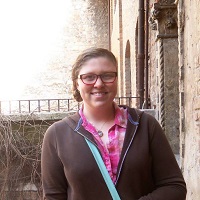Nell Nelson & the "City Slave Girls" Series
The series ran daily on the front page of The Chicago Times in 1888. Helen Cusack-Carvalho posed as "Nell Nelson", a poor female working girl and reported in-depth on the living conditions, wages, and work environments of industrialized 19th-century Chicago. The early publication of the series makes "Nelson" a pioneer of investigative reporting with ground-breaking work exposing the mistreatment of women and children.
The success of her series is a bewilderment considering the inversion of social norms represented in the writing of her exposé. She questioned the practices of the most prestigious men of Chicago through her satirical and witty writing and beat the adversity of being a woman in the 19th-century since the publication of the series gained attention from Chicago's political representatives and the owners of the companies scrutinized.
After the initial publication of the series, two books were printed within the same year recognizing "Nelson" and her investigative work. In addition to the two books, Nelson was hired by The World to reproduce a similar series, in New York. Although the significance of the series was recognized at the time of publication, Nelson's role in exposing the hardships of the "City Slave Girls" lacks any proper representation in modern history. The series should be a monumental resource for women's history, labor history, and the history of undercover journalism.
The biographical information on Helen Cusack-Carvalho is illusive; currently, anything close to a complete biography of her is nonexistent. The primary source of biographical information comes from a journal article by Eric W. Liguori published in 2012. In this article, Liguori writes that Helen's career as a journalist allowed her to maintain her middle-class status she was born into. Liguori reports that Helen married above her social class, to a man named Solomon Solis Carvalho, in 1895. After marriage, Helen's journalism career ceased to exist, and she lived the remainder of her life raising their two daughters. According to an obituary in a 1945 New York Times, Helen died in New Jersey. The obituary lacks any special recognition of her investigative series, despite its influential effects on the labor reforms of the late 19th-century.
Our Team

Rebecca Parker
She is the project manager and senior editor. She manages the project's site development, GitHub page, CodeBook, and team. She also contributes to research development, data visualizations, transcriptions, and encoding.

Nicole Lottig
Since joining the team in Spring 2016, she leads project transcriptions and GIS research. She also contributes to the encoding of transcriptions.

Rob Spadafore
As co-editor of the project, he initialized the parts-of-speech analysis. He contributes to computational analysis, proof-reading the encoded transcriptions, and the creation of data visualizations.
Special Thanks:
Dr. Elisa Beshero-Bondar, Dr. David Birnbaum, Prof. Greg Bondar, The Pittsburgh Supercomputing Center and our Pitt-Greensburg student contributors: Shane Daube, Brooke Stewart, Alexander Mielnicki, Kari Womack, and Cody Karch.